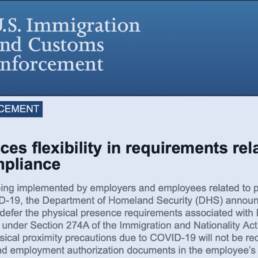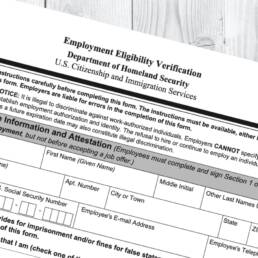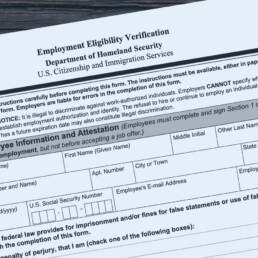employers
July 11, 2023
Deadline for Employers Who Employ Foreign Nationals
November 9, 2020
Relaxation of Employer I-9 Compliance will end November 19, 2020
November 3, 2020
DOS Proposes Ending the “B-1 in Lieu of H” Visa Policy
September 8, 2020
The L-1 Category for Managers
March 24, 2020
DHS Announces Form I-9 Requirement Flexibility
February 13, 2020










